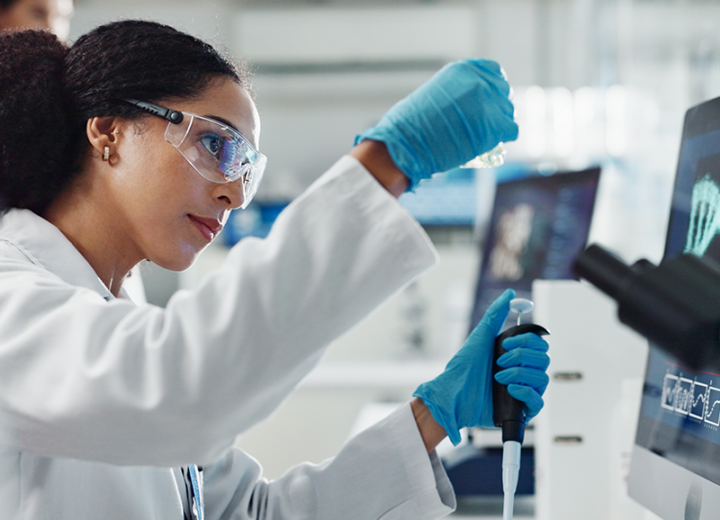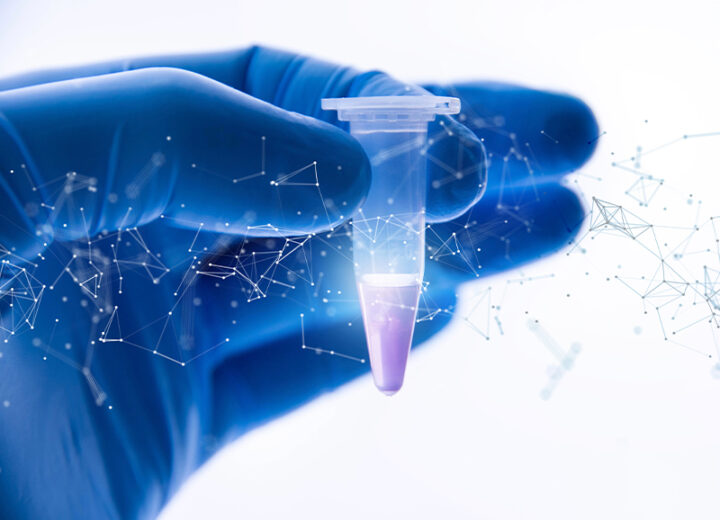15 July 2024
The future of recombinant proteins and innovation

Recombinant protein development is one of the pillars of modern biotechnology, with applications spanning medicine, cellular agriculture, cosmetics, and more.
As we venture into the future, innovations and emerging trends in recombinant protein production promise to revolutionize these fields. In particular, cultivated meat and advanced therapies will become a viable and scalable reality.
Below, we’re delving into the latest advancements in expression systems, large scale production, and the burgeoning applications of recombinant proteins.
Exploring the recent advancements in expression systems
One of the most significant innovations in recombinant protein production lies in the development of advanced expression systems. Now, there is a wide range of systems to choose from including mammalian cell cultures, insect cells, solid-state fermentation (SSF), and cell-free protein synthesis systems.
Mammalian and insect cell systems
Mammalian cells, including Chinese hamster ovary (CHO) cells, are highly valued for their ability to perform complex post-translational modifications, closely mimicking natural protein folding and glycosylation processes. These capabilities make them ideal for producing therapeutic proteins and antibodies.
The baculovirus expression vector system (BEVS) in insect cells is another good example. It’s a system that offers a robust platform for producing high yields of recombinant proteins with proper post-translational modifications.
Cell-free protein synthesis
Cell-free protein synthesis (CFPS) is another emerging technology which is supporting the rapid production of proteins, without the constraints posed by living cells.
By using cellular machinery extracted from organisms like E. coli, CFPS systems can produce proteins in a matter of hours.
What’s more, cell-free protein synthesis can incorporate non-natural amino acids, which dramatically expands the diversity – and functionality – of produced proteins.
What are efficient protein manufacturing techniques?
The production of recombinant proteins is being continuously refined, thanks to new innovative manufacturing techniques that aim to improve both efficiency and scalability.
Two core innovations in protein manufacturing that promise to continue revolutionizing the process include using natural bioreactors and deploying automated monitoring systems.
Using natural bioreactors
One promising approach is the use of natural bioreactors, including our system of leveraging moth cocoons: more specifically, Trichoplusia ni.
These bioreactors provide a controlled, biocompatible environment for protein production, significantly reducing the need for costly infrastructure, all while enhancing scalability.
Learn more about this sustainable and efficient alternative to traditional bioreactors on our dedicated technology page.
Deploying automated and real-time monitoring systems
The implementation of automated and real-time monitoring systems in bioreactors is another game-changer for the future of recombinant proteins.
These systems ensure uniform production conditions, maximizing productivity and reducing variability. By continuously monitoring parameters such as temperature, pH, and nutrient levels, these systems can promptly adjust conditions to maintain optimal protein yield and quality.
The drawback of these methods is that it requires time and additional costs to implement this kind of system, and the risk of contamination is still present.
Using natural bioreactors in the form of cocoons, as our platform does, removes the need for real-time monitoring all together. The insects self-regulate the parameters needed to effectively express proteins. By trusting these natural processes, we lower operating expenses and reduce the number of batches lost to contamination or unacceptable variation.
An example of innovation: the accessibility and affordability of growth factors
Growth factors are crucial for the cultivation of meat, playing a vital role in cell proliferation and differentiation.
However, their high cost has been a significant barrier to the economic viability of cultivated meat production.
Now, recent technological advancements are making growth factors more accessible and affordable: a critical step towards scaling up production.
Synthetic biology is offering innovative solutions for producing growth factors more efficiently. By engineering microbes to synthesize these factors, researchers can reduce development costs significantly, as engineered microbes can be cultured in large quantities, producing growth factors at a fraction of the cost of traditional methods.
For example, using insect cocoons to produce recombinant proteins has the potential to reduce the total cost of producing cultivated meat dramatically. Currently, growth factors represent roughly 90% of the total production costs. With our growth factors produced by cocoons, this could become less than 10%.
In addition, Cocoon’s unique platform can achieve recombinant protein expressions that even the best microbial fermentation systems simply cannot.Want to learn more? Discover the real world impact of accessible protein development today.
What are some new applications of recombinant proteins?
Beyond cultivated meat, recombinant proteins are finding new applications in personalized medicine, synthetic biology, and sustainable manufacturing.
Personalized medicine
In personalized medicine, recombinant proteins are now being used to develop targeted therapies tailored to an individual’s genetic profile.
This approach promises more effective treatments with fewer side effects. Recombinant insulin analogs are a great example of this – designed to better match the metabolic needs of patients with diabetes, and offering more precise control over blood sugar levels.
Synthetic biology
In synthetic biology, researchers are leveraging recombinant proteins to create novel biological systems and functions.
Now, these new systems and functions are bringing breakthrough applications to the way we live. Two examples of this include:
- The development of biosensors for detecting environmental pollutants or disease markers
- The use of synthetic metabolic pathways for producing biofuels and pharmaceuticals.
These innovations have the potential to transform industries by providing sustainable and efficient production methods.
Sustainable manufacturing
In sustainable manufacturing, recombinant proteins are being used to develop bio-based materials and chemicals to reduce society’s reliance on fossil fuels.
Enzymes produced through recombinant technology can catalyze reactions in the production of biodegradable plastics, biofuels, and other eco-friendly products. This not only reduces environmental impact but also opens new avenues for green technologies.
We’re reinventing protein production
The future of recombinant proteins is bright, with innovations in expression systems, manufacturing techniques, and new applications driving the field forward.
These advancements are not only making cultivated meat a reality, but are also unlocking new frontiers in personalized medicine, synthetic biology, and cosmetics.
At Cocoon, we’re determined to remain at the forefront of these developments, leveraging our expertise and cutting-edge technologies to address the challenges and opportunities in recombinant protein production.
By staying ahead of emerging trends, we can ensure the delivery of high-quality, efficient, and sustainable solutions for the biotechnology industry. Visit our blog to learn more about the future of recombinant protein development, and join us in shaping the future of biotechnology.


